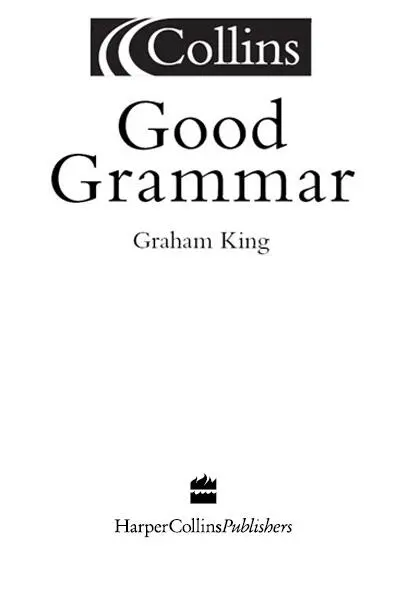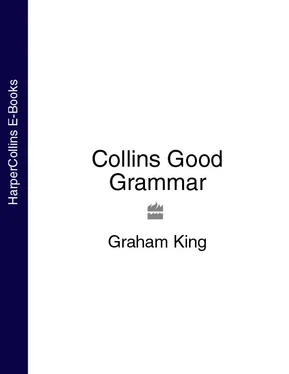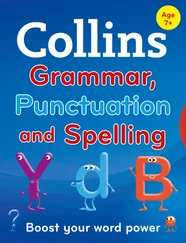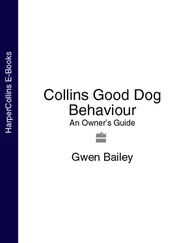
Cover
Title Page
The Thirteen Gremlins of Grammar
Introduction
What is Grammar? Why use it?
You know more about grammar than you think: Test
Grammar Test Answers and Scorecard
Let’s look at Sentences
The building blocks of sentences: Parts of Speech
Naming things: Nouns
You, me and other Pronouns
It’s a plane! It’s a bird! No! It’s Superverb!
Describing things: Adjectives and Adverbs
Grammatical glue: Determiners, Conjunctions, Prepositions
Punctuation: What’s the point?
Punctuation: Devices for separating and joining
Punctuation: Symbols of meaning
Writing good English: The Elements of Style
Index
Keep Reading
About the Author
Writing Guides by Graham King
Copyright
About the Publisher
“The greatest and most necessary task remains, to attain a habit of expression, without which knowledge is of little use.”
– Dr Samuel Johnson, LLD
Introduction: How to wrestle with grammar – and win!
It takes courage to pick up a book on grammar when schooldays are over. Real courage, if only distant (and probably unpleasant) memories survive of what the subject was all about.
But you have picked this one up. And take heart. Charlotte Bronte, author of Jane Eyre and one of the greatest exponents of the language, was hopeless in English at school. Her teachers complained that ‘she knew nothing of grammar’, and could read only ‘tolerably’ and write ‘indifferently’.
More recently, millions of young people have been denied even basic instruction in how to write good English – victims of the quarter-century blackout when the fashionable view of the education establishment was that a knowledge of how the parts of speech work was unnecessary. The acquisition of language skills happened naturally, they preached.
And so it does, to a point. Learning and obeying all the rules of grammar won’t automatically bestow excellence on your speech and writing; but completely ignoring them will almost certainly consign you to inarticulate semi-literacy.
Does being good at grammar help you in life? Thousands of people who hold down highly-paid top jobs can hardly spell or compose a coherent letter without help. Even The Times, regarded as a paragon of grammatical certitude, slips up with comforting regularity: ‘According to the Adult Literacy and Basic Skills Unit,’ it reported recently, ‘one in four 16- to 20-year-olds have reading problems and more than one third have trouble with spelling.’ (the first have should be has , to agree with its antecedent one in four ). Embarrassingly, the slip-up occurred in an editorial on the need for the rigorous teaching of grammar.
Are we being picky, or what? The danger is, if we allow seemingly minor transgressions to go unnoticed, we could find ourselves grappling with a leaky language system reeking of confusion and ambiguity.
Surely computer technology can help us with grammar. It can go some of the way, yes, but over-reliance on corrective software can be dangerous. An English student, writing a character study of Bottom from A Midsummer Night’s Dream for a drama exam, ran the essay through the word processor’s grammatical check tool. Her sentence, ‘Puck thought it would be fun to place an asses’s head on Bottom’ was highlighted with the instruction: Avoid this offensive term. Consider revising.
Just as it’s considered necessary to accept some basic instruction before driving a car, pretty much the same applies to writing. Before driving a car you learn to recognise some of its more important parts: the ignition and lights, the steering wheel, clutch, gears, brake, petrol tank, windscreen wipers and so forth. It’s also necessary to know just what each part does, and what happens when you press it, turn it, pull it or push it. You also need to learn some rules – about speed, signalling, red and green lights, traffic and road signs. When you do all this, you can drive. When you do it all well, you might even drive well. Of course many people learn to drive a car without professional instruction, but, insufficiently equipped, they are often a danger to themselves and others.
It’s not too different with reading, speaking and writing. Yes, we get by. But learning or relearning the rules and principles that govern the use of the language can only improve our communication skills. And more than ever, effective communicating is vital to our lives, our success, our enjoyment.
By picking up this book you’ve recognised that to improve your communication skills you probably need to return to basics. You’ve picked up the right book. Collins Good Grammar is designed to explain, step by practical step, authoritatively but entertainingly, the workings of our language, and to help you wrestle with its grammar – and win!
What is Grammar? Why use it?
This won‘t take long.
A language requires two elements to fulfil man’s need to communicate effectively: a vocabulary and a grammar.
The vocabulary is the language’s stock of words: combinations of symbols, signs or letters that have evolved to identify things and ideas. But words by themselves can never constitute a language. Imagine someone possessing all the words required to express the message in the first three sentences, but no method of putting them together to make sense. An attempt might look like this:
Grammar about what duration of the clock will not take much duration not take small duration reasons to tell.
It would be like trying to build a solid wall with tennis balls. What’s needed is some cement or glue to stick them together, to create a structure that others will recognise. In the case of a language this glue is a system of rules called grammar.
Languages aren’t created in a day; some have evolved over hundreds, even thousands of years, and are still evolving. The users of any language must constantly invent to adapt to fresh circumstances, and when invention flags they must borrow.
Not only words, but rules, too. English grammar contains rules that can be traced back to the Greeks and Romans: rules that helped the early users of our language to string their words together to create increasingly clearer and more complex messages. They enabled that meaningless jumble of words to take shape as a recognisable sentence:
To tell what grammar is and that grammar should be used will need not little time not long time but some little long time.
A big improvement, but still clumsy and vague. Obviously the language still required some more words and rules. The speaker needed a word more precise than tell , such as explain . Also needed was a system for building phrases with their own meanings, and another system for adding inflections to basic words to indicate time and sequence: explain , explaining , explained . With such improvements the sentence not only becomes shorter but also expresses the speaker’s intentions with greater accuracy:
Explaining what grammar is and why you should use grammar will not take a long time.
Then users began to get clever by inventing idioms such as not too long to say in three words what it took nearly a dozen to say in an earlier version. They also learned about ellipsis. To avoid repetition they created pronouns to substitute for nouns, phrases and whole sentences. Here, this stands for the two questions:
Читать дальше













